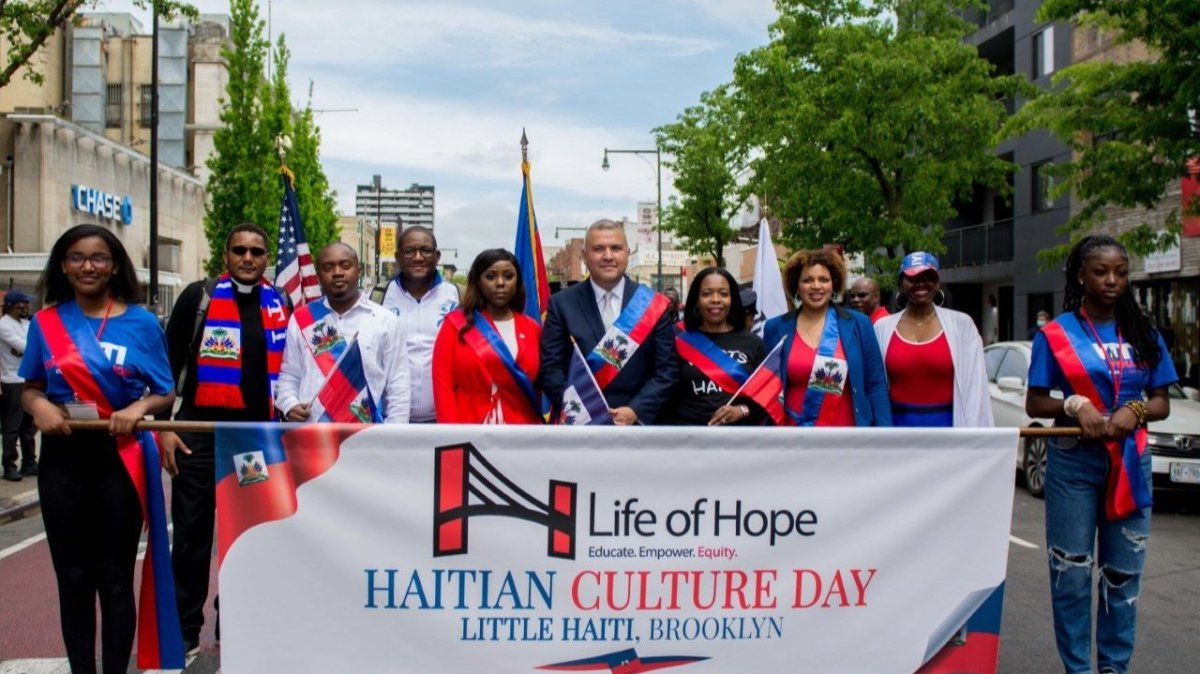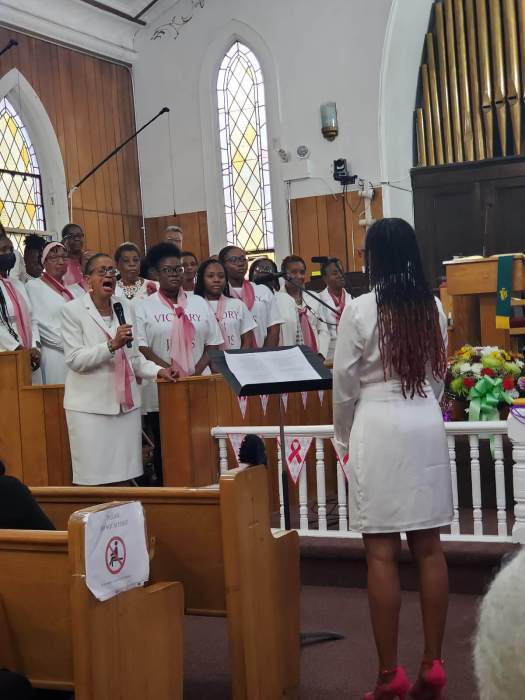After quickly progressing from pre-diabetes to diabetes, Brooklyn resident Bernice Walker says she is praying fervently to eventually be diabetes-free.
“With God’s grace, I hope to be able to live free of this disease,” Walker, a minister at the 134-year-old Fenimore Street United Methodist Church in Brooklyn and native of St. Kitts, the larger island in the twin-island federation of St. Kitts and Nevis, told Caribbean Life after Worship Service on Sunday.
Walker, who was diagnosed with pre-diabetes in 2011 and has been “struggling” with diabetes over the years, as well as with other medical ailments, said her A1C went from 6.0 to 7.0 “in no time.”
A1C is the average of the blood sugar levels in one’s body over a three-month period; the higher the A1C number, the greater probability that one will develop diabetes complications. A1C 4.6 – 6.0 is considered normal (does not have diabetes); 5.7 – 6.4 (pre-diabetes); and 6.7+ (diabetes).
As a result of her high A1C, Walker, an East Flatbush, Brooklyn resident said her primary care physician prescribed Metformin to control her sugar levels.
“But it only made me feel worse,” said the retired medical assistant. “And, with my experience in that field, I’m trying to manage the disease with care.”
She said she has changed her diet to be more plant-based, adding that “even though I know the body requires some sugar, I try to limit the portion I consume on a daily basis.”
“I also discovered that people of the Black race suffer more from the effects of diabetes because of poor nutrition or poverty on a whole,” said Walker, who has been a member of Fenimore Street United Methodist Church, at the corner of Fenimore Street and Rogers Avenue, since 1985.
“But what I’ve come to discover is that this disease doesn’t affect everyone the same way; it differs,” she added, stating that she has also discovered that “it affects the endocrine system, which governs a small group of specialized cells that make up the endocrine portion of the pancreas.”
The pancreas is an organ of the digestive and endocrine systems. The exocrine pancreas produces enzymes that aid in digesting food, primarily protein. The endocrine pancreas produces the hormone insulin that aids in controlling blood sugar levels.
Therefore, in order not to be dependent on insulin, Walker said she has been counting her calories, watching what she eats and trying to take care of herself as best as she can, noting that “the organs of the body can be damaged severely”, if one does not exercise caution and closely follow medical instructions.
She warned that amputation or early death can result “if you don’t take care of the body and what you put in it on a daily basis.”
However, Walker expressed strong confidence that she will overcome diabetes, placing her faith in Jesus Christ and expressing gratefulness for “His many blessings.”

























